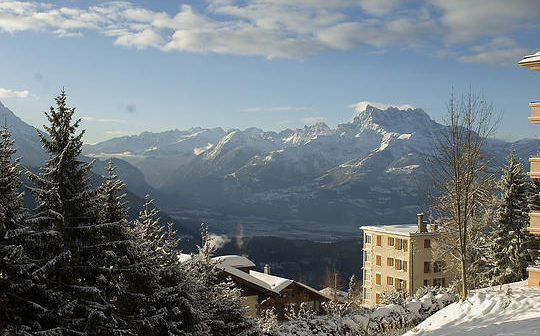Teachers at international schools sometimes get a bum rap. The idea that people who teach overseas are somehow less professional or qualified than educators back home is a common misconception – perhaps due to an unfortunate confusion with certain less-than-stellar overseas English teachers who get hired by dubious organizations simply because they were born speaking English, or even worse, due to their ethnicity.
Common sense dictates that it’s the individual and not the location of their institution that determines the quality of the educator. This was certainly true in my school years when I attended a range of public and private institutions back in the States and abroad. My teachers ranged from the utterly crappy (i.e. high school football coaches doubling as “history teachers” whose entire curriculum consisted of reading chapters aloud from the textbook) to the eminently inspiring, and I found that no matter where I went, the ratio was about the same – 2:1 (two crappy teachers for every one excellent educator).
Like most students I also had my favorites – those teachers whom I respected, enjoyed learning from, and/or got along well with. Of these there were many, but in my experience there was one teacher who stood about above the rest.
In 1990 my father was transferred to Dubai and part of his package was an opportunity for me to attend boarding school overseas (at the time Dubai’s international school did not go past the tenth grade). After some discussions with my parents, we settled for a school in Switzerland; and though it was difficult leaving my friends behind, I set off for my senior year in Europe with an open mind.
The boarding school I attended is located in a small town called Leysin perched atop the Alps in the French speaking part of the country. Opened in 1961, it has continuously educated students from around the world in an American-style curriculum. Today, Leysin American School alumni range far and wide, with a few, including myself, living here in Beijing.
When I arrived at the campus in the fall of that year, one of the first people I met was Fred Sharp – a garrulous and slightly eccentric Englishman who was our dorm proctor and my teacher-to-be in English and the Humanities. I found him intimidating at first; particularly during the first week when he sternly lectured the boy’s dormitory during an assembly – someone, it seemed, had been deliberately clogging up the toilets with toilet paper.
But my impression quickly changed after a few lessons in his classroom. Still awash with memories of that textbook-reading “history teacher” from the year before, I found Mr. Sharp’s lectures intensely engaging by contrast. Whether he was describing the “unbridled passion” of Wuthering Heights, a Beethoven concerto or Yama, the “King of the Dead” in traditional Tibetan Mythology, he always did so with an infectious enthusiasm that bordered on fervor. He was diverse as well – his courses not only included English and The Humanities, but he also went on to teach mathematics, statistics and a course with the grandiose title of “The Theory of Knowledge.” His colorful lectures were as entertaining as they were informative to even the most jaded of students and he remained one of the most well known teachers on campus long after I graduated. There were other fine faculty members on staff during my year at LAS, Mr. Sharp was by far the most memorable to me – even more so than all the professors I had in university.
I lost touch with Mr. Sharp after graduation – for 18 years to be exact – until one day recently when we got in contact again through Facebook. I was amazed to see that he was still at LAS (after 25 years) and now a part of the alumni office. On a whim I sent him a friend request and a message, and was delighted to get a reply. It was even more of a surprise to see that he still remembered quite well, as if I had just graduated.
Just last week we met up here in Beijing along with two other students (one a recent graduate and the other a current student) as he was traveling through Asia for the summer. Over dinner he updated me on goings-on back in Leysin and all the changes at the school (where annual tuition is now a staggering €70,000). Despite feeling quite old myself (especially compared to my fellow alumni at the table), Mr. Sharp had not changed a lick – he looked exactly the same as what I remember from 18 years ago (due in no small part to his 25 years of living in the Swiss Alps).
As loquacious and engaging as ever, he still managed to amaze me with his encyclopedic memory; and despite the fact that he’s had almost a thousand students since my time, he remembered the names and faces (from photos we shared) of almost everybody in my class and has kept in touch with hundreds of his former students through Facebook and his travels each year.
Now, after 25 years, he is finally considering leaving Leysin for a teaching opportunity elsewhere, perhaps even here in Beijing. Any school would be lucky to have him.




